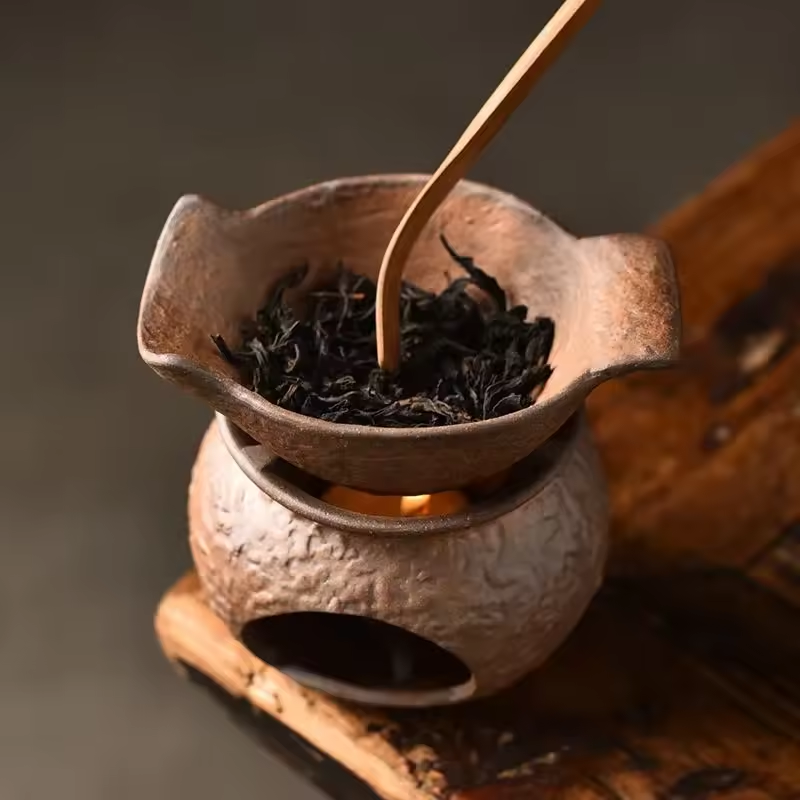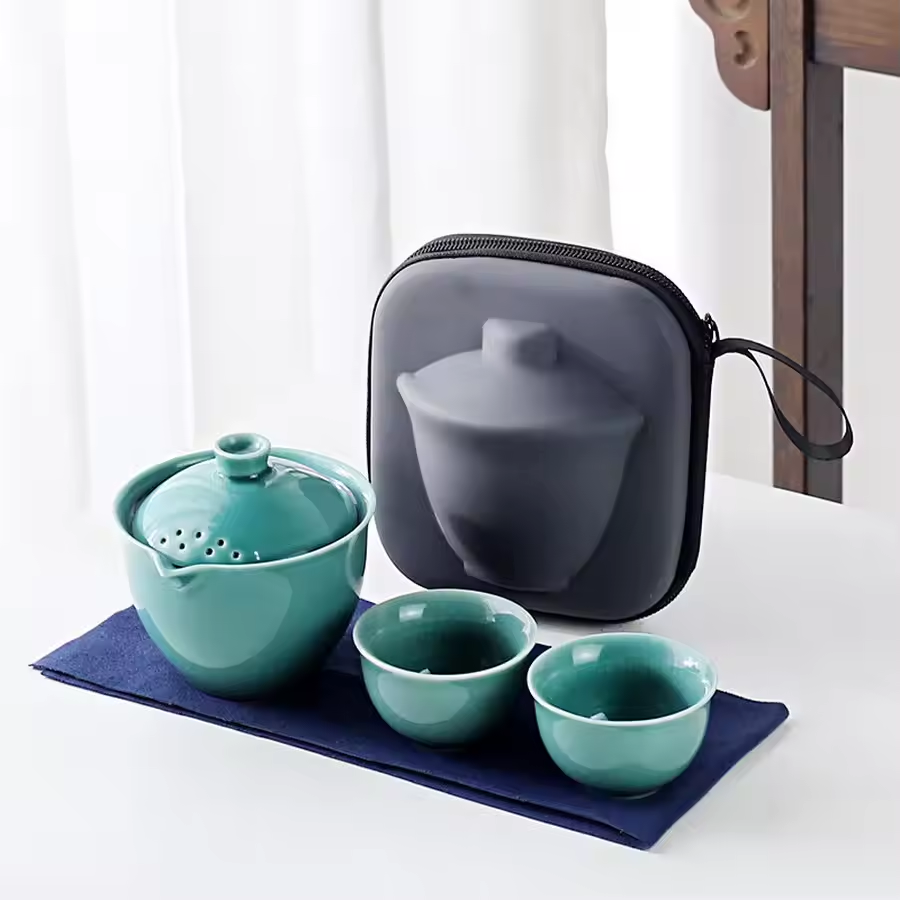What is Black Tea?
Black tea is a popular beverage known for its rich flavor and awakening properties. It comes from the Camellia sinensis plant, the same source as green, oolong, and white tea. However, black tea undergoes a full oxidation process. This process, often referred to as fermentation, alters the flavor and increases the caffeine content. In terms of taste, black tea often boasts a bold and robust profile, which can range from sweet and malty to spicy and smoky. Due to the full oxidation, its leaves turn dark brown or black, hence the name. Worldwide, many cultures enjoy black tea as part of their daily routines, often consumed in the morning or afternoon to harness its stimulant effects. Many are curious if does black tea have caffeine? – it certainly does, and the level can vary based on several factors.

The Caffeine Composition of Black Tea
The question ‘does tea have caffeine?’ often arises among tea drinkers. To answer succinctly, yes, black tea contains caffeine. Generally, a cup of black tea holds 40 to 70 milligrams of caffeine. But, the exact amount can differ widely. This variance is due to factors such as the type of tea leaf, processing methods, and brewing time. Typically, black tea has more caffeine than green or white tea but less than coffee.
The presence of caffeine is natural in black tea. It’s a compound that both plants and humans value. In plants, caffeine works as a natural pest deterrent. For us, it offers a gentle stimulant effect that can heighten alertness and reduce feelings of fatigue. When we sip on a cup of black tea, we enjoy not just its rich flavors but also the energizing influence of caffeine. Careful consumption can lead to a pleasant boost in energy and focus throughout the day.
Factors Influencing Caffeine Levels in Black Tea
The caffeine content in black tea can differ greatly. Several elements affect the levels. These elements help answer does black tea have caffeine? and to what extent. Let’s explore these factors.
Type of Tea Leaf
Tea leaves come in many varieties. Each has a unique caffeine amount. For instance, Assam tea often has higher caffeine than Darjeeling varieties.
Processing Methods
How we process tea leaves also plays a role. Leaves crushed into fine powder tend to release more caffeine.
Brewing Time
The longer you brew your tea, the more caffeine it releases. A quick steep might lead to less caffeine in your cup.
Leaf Size
Smaller leaf pieces infuse faster. They often lead to a drink with more caffeine.
Water Temperature
Hotter water extracts caffeine more efficiently. This means using boiling water can up the caffeine levels.
By understanding these factors, you can better manage your intake. Knowing does black tea have caffeine? and how much, guides your consumption. Especially for those monitoring their caffeine intake.
 Comparing Caffeine: Black Tea vs. Other Beverages
Comparing Caffeine: Black Tea vs. Other Beverages
When considering the caffeine content, black tea is in good company. Let’s compare its caffeine levels to other popular beverages.
Coffee
Most people know coffee is high in caffeine. A typical cup of coffee can contain 95 to 200 milligrams, dwarfing the caffeine in black tea.
Green Tea
Green tea, another beloved drink, has less caffeine than black tea. It usually offers 20 to 45 milligrams per cup.
White Tea
White tea is the least processed tea and contains only 15 to 30 milligrams of caffeine per cup.
Soft Drinks
Many soft drinks have caffeine added to them. They vary widely, but usually fall between 20 to 40 milligrams per serving.
Energy Drinks
Energy drinks are packed with caffeine. They can have anywhere from 50 to a whopping 300 milligrams.
Understanding the caffeine levels in black tea compared to other beverages helps you manage your intake. Whether you’re looking for a morning pick-me-up or an afternoon refresh, knowing does black tea have caffeine? and how it stacks up against other drinks empowers you to make informed choices for your lifestyle.
 Health Benefits and Effects of Caffeine in Tea
Health Benefits and Effects of Caffeine in Tea
Many are curious whether does black tea have caffeine? and what its effects are. Caffeine, when consumed in moderation, can offer numerous health benefits. Additionally, it has some short-term effects on our bodies that are worth noting.
Health Benefits of Caffeine
Caffeine’s gentle stimulant effect can improve mental alertness and concentration. It may also help enhance physical performance by providing a quick energy boost. Some studies have indicated that regular caffeine consumption could reduce the risk of certain health issues, such as Parkinson’s disease and type 2 diabetes.
Short-term Effects on the Body
The effects of caffeine from tea can be felt shortly after consumption. It works by blocking adenosine, a neurotransmitter that promotes sleep. This action helps you feel more awake and focused. However, high doses might lead to nervousness or jitters. It’s important to be aware of your caffeine limit and listen to your body’s cues.
How to Measure the Caffeine Content in Tea
For those who are conscious of their caffeine intake, measuring the exact caffeine content in black tea is valuable. It helps in managing one’s diet and ensuring that they do not exceed their preferred caffeine limits. Here’s how you can gauge the caffeine levels in your cup of black tea:
- Read the Label: Many tea manufacturers provide estimates of caffeine content on their packaging. This can give you a general idea.
- Use a Caffeine Measuring Kit: There are kits available that can test the caffeine content in your tea. They involve adding a sample of the brewed tea to a solution that indicates caffeine presence.
- Refer to Research: Look at scientific studies or data that measure caffeine in different tea brands and types.
- Consult with Baristas or Tea Experts: Tea professionals may provide insights based on their experience and knowledge of various teas.
- Consider the Factors: Recall the factors affecting caffeine content – like type of leaf, processing, brewing time, leaf size, and water temperature – and use this knowledge to estimate the caffeine level.
- Experience: Use your personal experience with how different teas affect you to estimate their caffeine content.
While exact measurement at home can be challenging without proper tools, these methods can help you make an informed guess. Remember, the aim is to enjoy your tea while keeping tabs on your caffeine consumption.
 Decaffeinated Black Tea: An Alternative Option
Decaffeinated Black Tea: An Alternative Option
For those cautious about caffeine intake, decaffeinated black tea serves as a great alternative. It undergoes a process to remove the majority of caffeine, often leaving only trace amounts behind. The process typically involves treating the leaves with a solvent or water, both of which are effective in extracting caffeine while preserving the tea’s essential flavors. It enables tea enthusiasts to enjoy the taste and ritual of their favorite brew without the concern of overconsumption of caffeine. Therefore, ‘does black tea have caffeine?’ Yes, but decaffeinated versions offer much less, making it a suitable option for late evenings or for people with caffeine sensitivities. Additionally, this alternative aligns well with those who seek the benefits of tea’s antioxidants without the stimulating effects. When choosing decaffeinated black tea, it’s important to check labels, as the amount of residual caffeine can vary between brands. By opting for decaffeinated black tea, you can still savor the traditional warmth and richness of black tea while minimizing your caffeine intake.
 Tips for Managing Caffeine Intake with Black Tea
Tips for Managing Caffeine Intake with Black Tea
With an understanding that black tea does indeed contain caffeine, managing your intake is crucial. Here are simple tips for keeping track of and adjusting your caffeine consumption while still enjoying your tea:
- Mix with Decaf: Blend regular black tea with its decaffeinated counterpart to reduce caffeine.
- Shorten Brew Time: Steep your tea for a shorter period to lower the caffeine content.
- Smaller Servings: Opt for a smaller cup of tea to naturally cut down on caffeine.
- Monitor Your Body: Pay attention to how your body reacts to caffeine and adjust accordingly.
- Limit Late-Day Consumption: Avoid drinking black tea late in the day to prevent sleep disruption.
- Know Your Tea: Choose tea varieties known for lower caffeine levels, such as Darjeeling.
- Stay Hydrated: Drink plenty of water to balance your fluid intake alongside caffeinated beverages.
- Spread Out Consumption: Space out your cups of black tea throughout the day to avoid a caffeine spike.
By following these tips, you can enjoy the benefits of black tea without overdoing the caffeine. Listening to your body and knowing how much caffeine is right for you are key to a balanced tea-drinking experience.